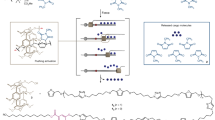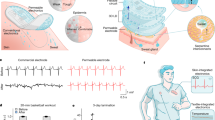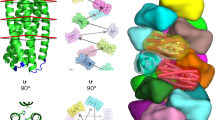Abstract
THE films of long-chain organic compounds (e.g. the aliphatic mono- and dibasic acids) crystallised on glass surfaces possess a structure in which the molecules are orientated so that their terminal groups lie in a series of planes parallel to the surface on which they are deposited. This structure is similar to that postulated by Friedel for liquid crystals (e.g. soap curds) in the smectic state. In the lamellse between the planes, the long chains are arranged with respect to the surface at an angle which depends on the nature of the terminal group. For the mono-basic fatty acids the inclination is about 55° and for the esters of these acids approximately 90°.
This is a preview of subscription content, access via your institution
Access options
Subscribe to this journal
Receive 51 print issues and online access
$199.00 per year
only $3.90 per issue
Buy this article
- Purchase on Springer Link
- Instant access to full article PDF
Prices may be subject to local taxes which are calculated during checkout
Similar content being viewed by others
Author information
Authors and Affiliations
Rights and permissions
About this article
Cite this article
GARNER, W. Bio-Chemistry of Muscle Contraction. Nature 115, 532–533 (1925). https://doi.org/10.1038/115532b0
Issue Date:
DOI: https://doi.org/10.1038/115532b0
Comments
By submitting a comment you agree to abide by our Terms and Community Guidelines. If you find something abusive or that does not comply with our terms or guidelines please flag it as inappropriate.



